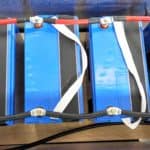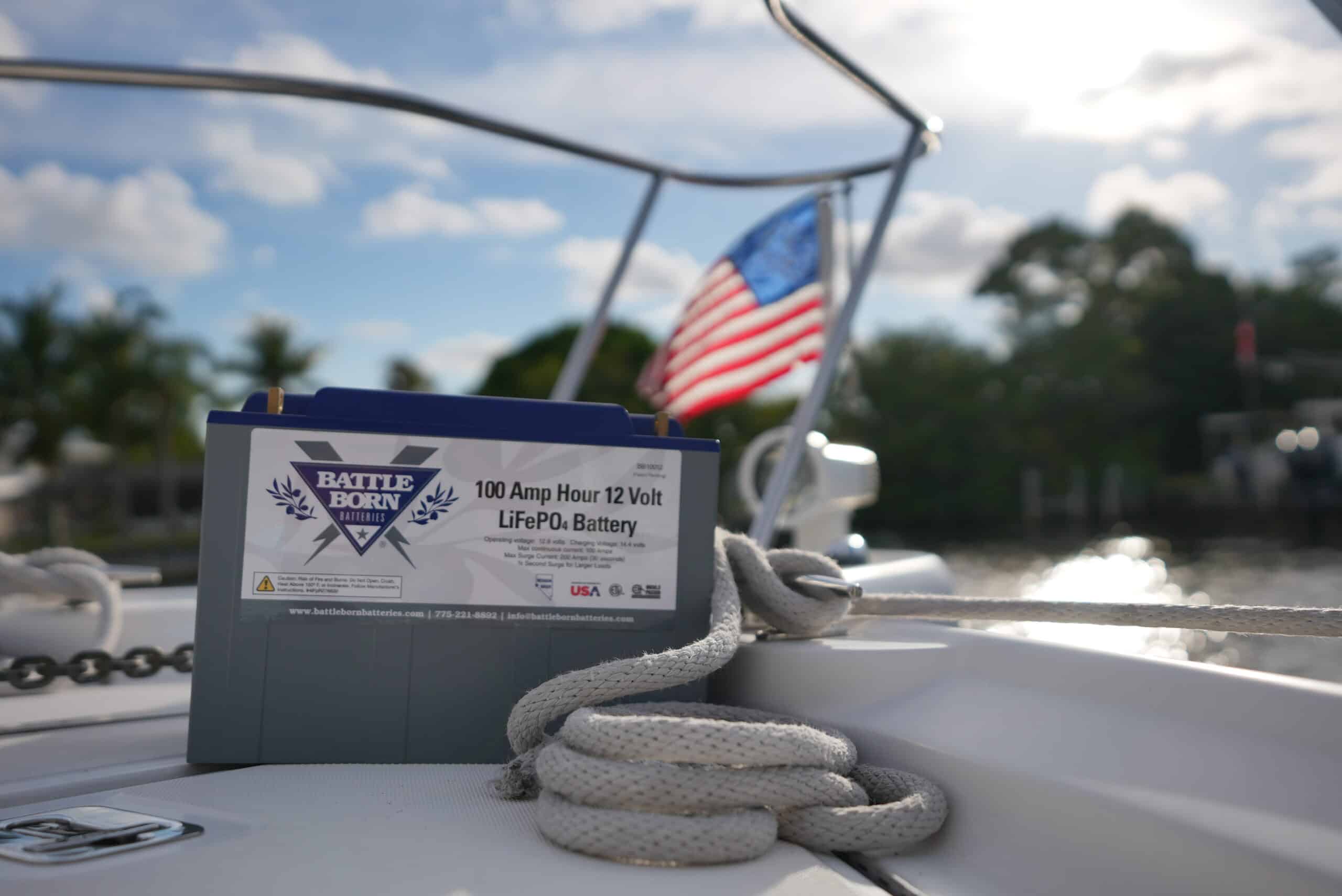
MENUMENU
TALK TO AN EXPERT
Special Hours: 7AM – 6PM PST
TALK TO AN EXPERT
Special Hours: 7AM – 6PM PST
If you are considering transitioning to lithium batteries for your boat, one potential concern may be obtaining insurance coverage. However, thanks to the American Boat and Yacht Council (ABYC), new standards have been established to facilitate the transition to lithium batteries and provide insurance.
The recent ABYC E-13 standards outline specific safety measures for lithium batteries, including incorporating a battery management system (BMS) and adherence to manufacturer instructions. Additionally, the standard mandates installing low-voltage shutdown alerts to ensure safe operation.

ABYC E-13 is the standard put in place to create actionable items to meet and be insured by most boat insurance companies.
13.5.2 Lithium-ion battery systems shall be installed, commissioned, and maintained in accordance with the manufacturer’s recommendations.
13.7.4 An output disconnect device shall be capable of disconnecting the output immediately when operating under the battery’s or the battery system’s maximum specified discharge rate.
Note: If a shutdown condition is approaching, a battery system should notify the operator with a visual and/or audible alarm before disconnecting the battery from the DC system.
There are more than 3,000 technicians who have been certified by ABYC. Most water vessels adhere to the ABYC standards when constructed. The newly established ABYC guidelines guarantee that boat maintenance and safety adhere to the highest level of expertise.
Most insurance companies do not have a reference from a respected and trusted organization to insure marine boats properly. In this blog, we discuss the difference between the different chemistries used in lithium-ion batteries. This includes LiFePO4 and the new guidelines put out by ABYC regarding lithium batteries.
Internet comment boards have been inundated with users about the difficulties of getting insured because of the dangers of lithium-ion batteries combusting. Other comments on the forums claim “that if an owners’ system was not upgraded and installed by an ABYC certified electrician, claims might be denied entirely.”
This can prevent a challenge for marine boat owners looking to retrofit their systems with more sustainable and longer-lasting systems. Malcolm Stewart, branch manager of A Plan, tells Marine Industry News, “Some insurers will not accept risk with lithium batteries, and some are taking a pragmatic view. The best thing to do is to speak with your broker and let them know what you are doing.”

What exactly is so special about LiFePO4 (Lithium-ion)? Lithium-ion runs longer with faster charging and better performance than its lead counterparts. LiFePO4 demonstrates remarkable chemical stability, making them the safest option among other batteries. Battle Born LiFePO4 batteries, in particular, are renowned for their exceptional durability, even under high-temperature conditions. Please note that LiFePO4 batteries differ from other lithium chemistries like LCO or NCA, which Electric Vehicle applications typically use. Their compact design allows them to fit in small, inconvenient spaces, such as those commonly found in RVs or on boat storage systems.
The superior level of safety is due to the resilience of LiFePO4 ions, which maintain their physical structure and chemical properties throughout charge cycles and potential malfunctions. LiFePO4 batteries can effectively withstand oxygen flux, further enhancing stability and reliability.
In addition to its numerous safety features, LiFePO4 batteries exhibit exceptional efficiency and performance. Lithium-ion batteries have a superior charging rate and require less maintenance than lead-acid batteries. Furthermore, LiFePO4 batteries are optimized for energy efficiency. This enables them to charge and discharge at rates that promote longevity and quality over extended periods with minimal maintenance.

Controlling thermal runaway within a battery cell can be very difficult once it has started. It happens when the internal temperature of a battery reaches a point where a chemical reaction takes place, releasing more heat. This, in turn, further raises the temperature, triggering an additional chemical reaction that generates even more heat.
This chain reaction happens milliseconds, causing a sudden and intense discharge of the battery’s stored energy. The outcome is an escalation of temperature to levels as high as 752 degrees Fahrenheit (400 degrees Celsius). This can lead to gas generation and an extremely intense fire that is notoriously hard to put out.
A battery management system (BMS) is a crucial component in most lithium-ion battery packs. Acting as the control center for the battery pack, the BMS guarantees that the battery is operating under certain conditions. By minimizing the possibility of thermal runaway, battery management systems play a vital role in ensuring lithium-ion batteries’ safe operation and optimal performance.
At Battle Born Batteries, we understand the importance of battery safety. To protect against overcharge and undercharge situations, we incorporate a built-in battery management system into our Battle Born Battery products. Each battery undergoes rigorous testing as part of our extensive quality assurance process before being shipped to customers.
Battle Born Batteries stresses the importance of a proper battery management system (BMS) for ensuring battery health, longevity, and safety. Lithium-ion batteries contain highly flammable liquid electrolytes. Therefore, optimal operation within safety limits is essential to prevent fire hazards.
Section 13.7.4 of ABYC E-13 emphasizes the necessity of an output disconnect device. It must be capable of immediately disconnecting the output when operating under a specific discharge rate.
While notifying the user of a system shutdown is essential, it can be challenging for users to discern a noise emanating deep within the hull. This stresses the significance of a proper BMS system connected to your smartphone.
Battle Born Smart LiFePO4 batteries with Dragonfly IntelLigence technology strives to revolutionize marine power systems by offering safe, reliable, and intelligent electric solutions. By connecting to the Battle Born Mobile App, users can remotely monitor their entire power system. Users can receive push notifications for critical alerts and shut down the system remotely. These advanced features enable your Battle Born Battery based power system to comply with new ABYC E-13 standards for lithium batteries.
The safety standards of the American Boat and Yacht Council (ABYC) have safely facilitated the transition to lithium batteries for boats. The ABYC E-13 standards mandate specific safety measures, including installing a battery management system (BMS) and adhering to manufacturer instructions.
LiFePO4 batteries, in particular, offer superior performance and safety features and, with the proper BMS system and monitoring, can comply with the ABYC E-13 standards. Upgrade your boating experience with the revolutionary lithium battery storage transforming the marine industry.
Shop Best Sellers








Ask a technical specialist now at 855.292.2831
Stay in the Know